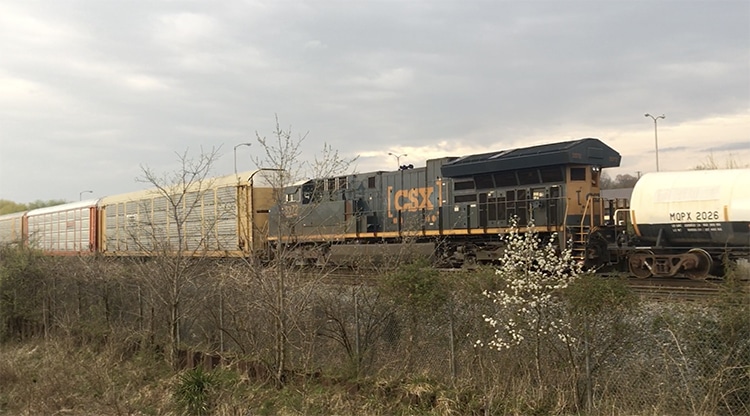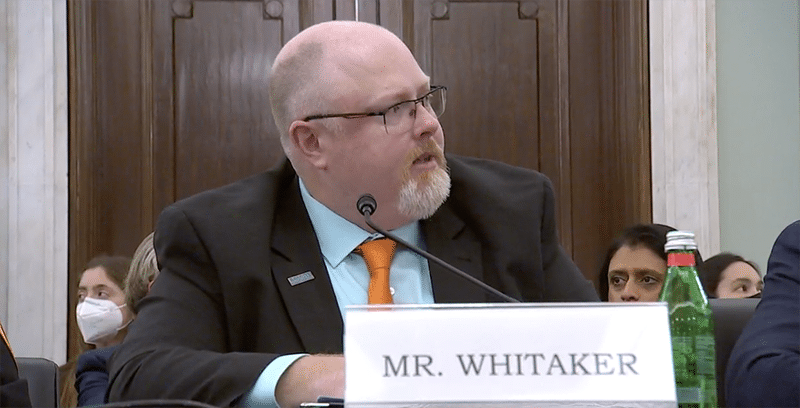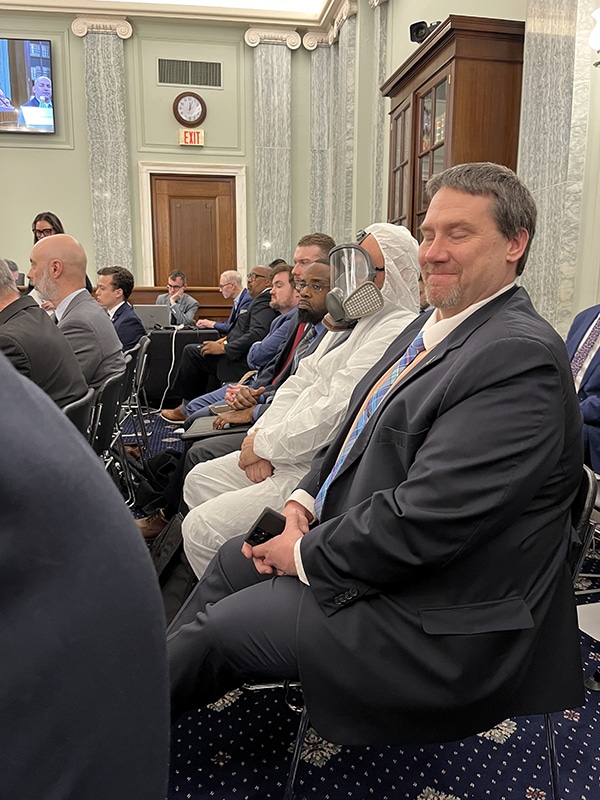Lance Fritz, president and chief executive officer of the Union Pacific Railroad, is on his way out the door after announcing in late February that he will vacate his office by the end of 2023. Though there is no publicly announced date for his departure, his hand is on the ripcord and he’s preparing to deploy that golden parachute.
That being said, SMART Transportation Division Colorado State Legislative Director Carl Smith didn’t want Fritz to go without a little something to remember his legislative committee by. But rather than going with the cliché of getting Fritz a ritzy timepiece and a handshake, he rented a digital billboard truck to track Fritz around Colorado for four days in early April.
As Fritz took the executive business car around Smith’s state, he was escorted by the billboard truck that showed rotating signs that featured several messages regarding Colorado’s rejection of Precision Scheduled Railroading (PSR), such as “Our Mile-High State Doesn’t Need 3 mile-long trains!” and, “It can happen here too!” with pictures of the derailment and hazmat spill in East Palestine, Ohio. Messages on the truck’s rolling billboards included a QR code that could be scanned by anyone who saw it and took people directly to the SMART Legislative Action Center, where people could support national rail safety legislation.
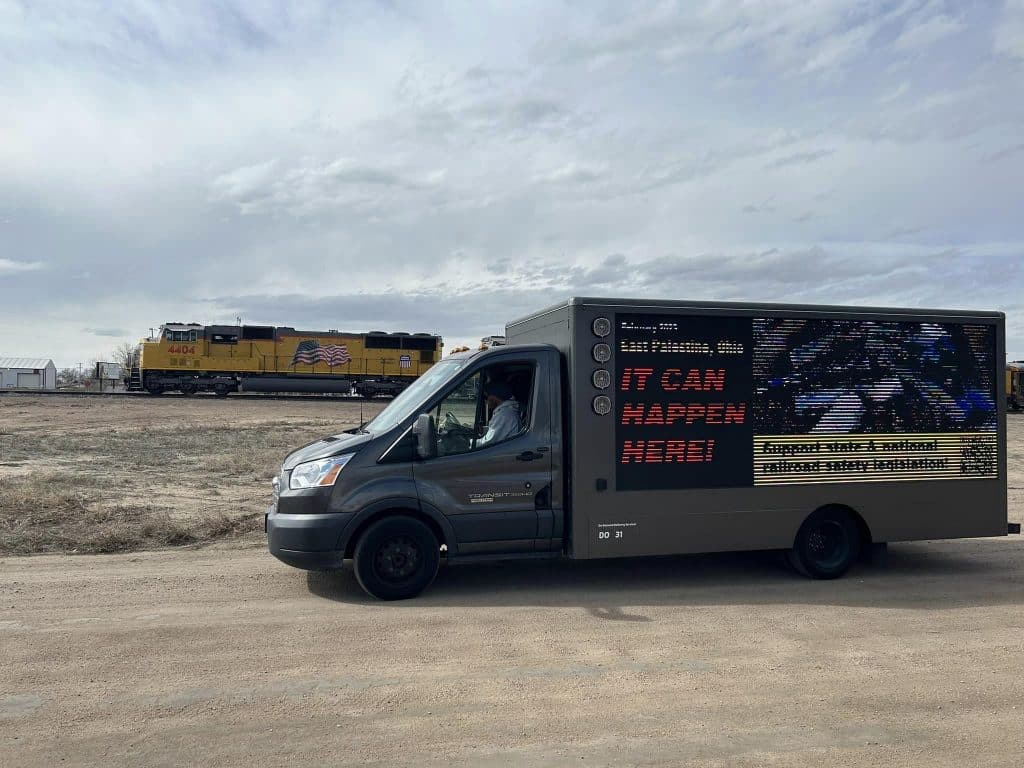
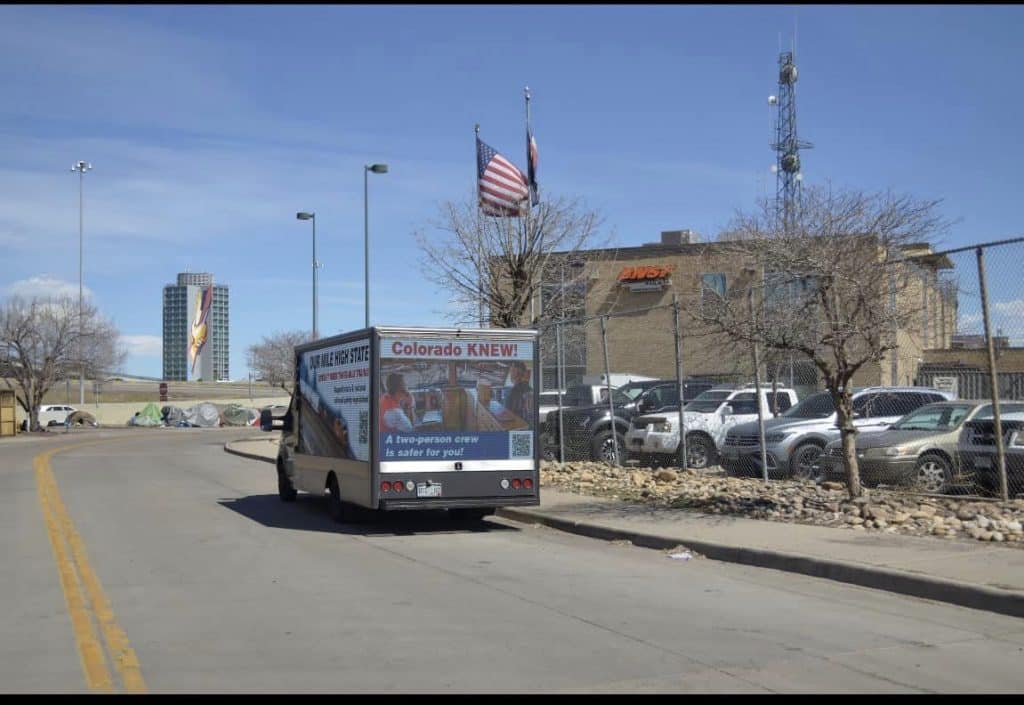
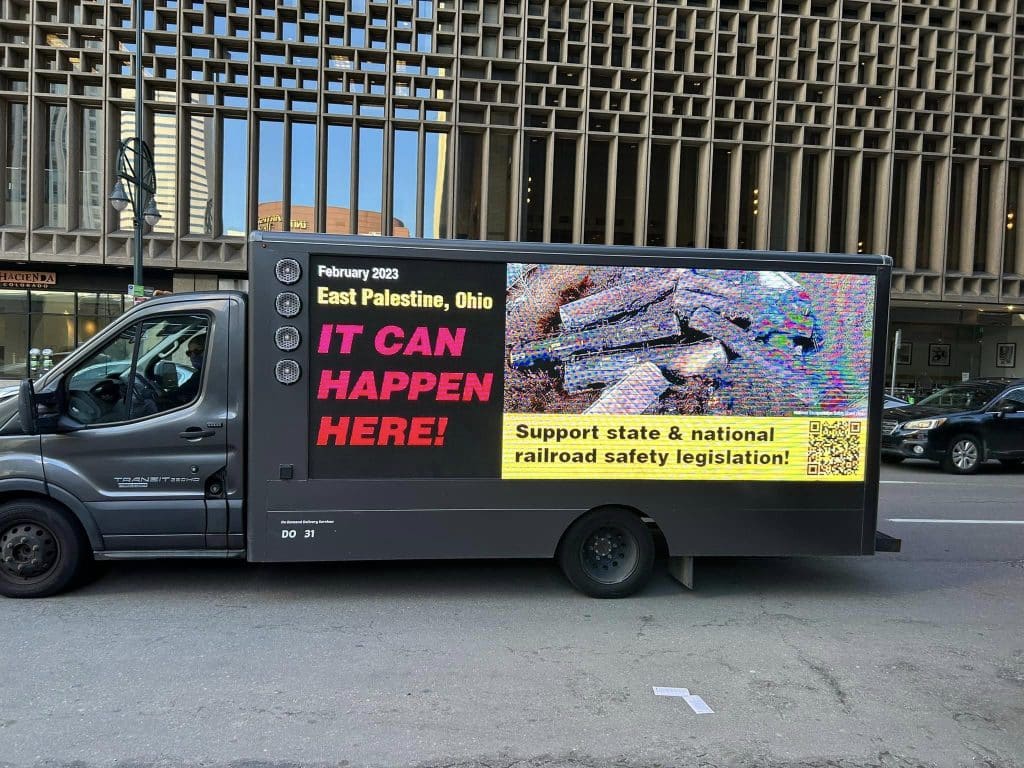
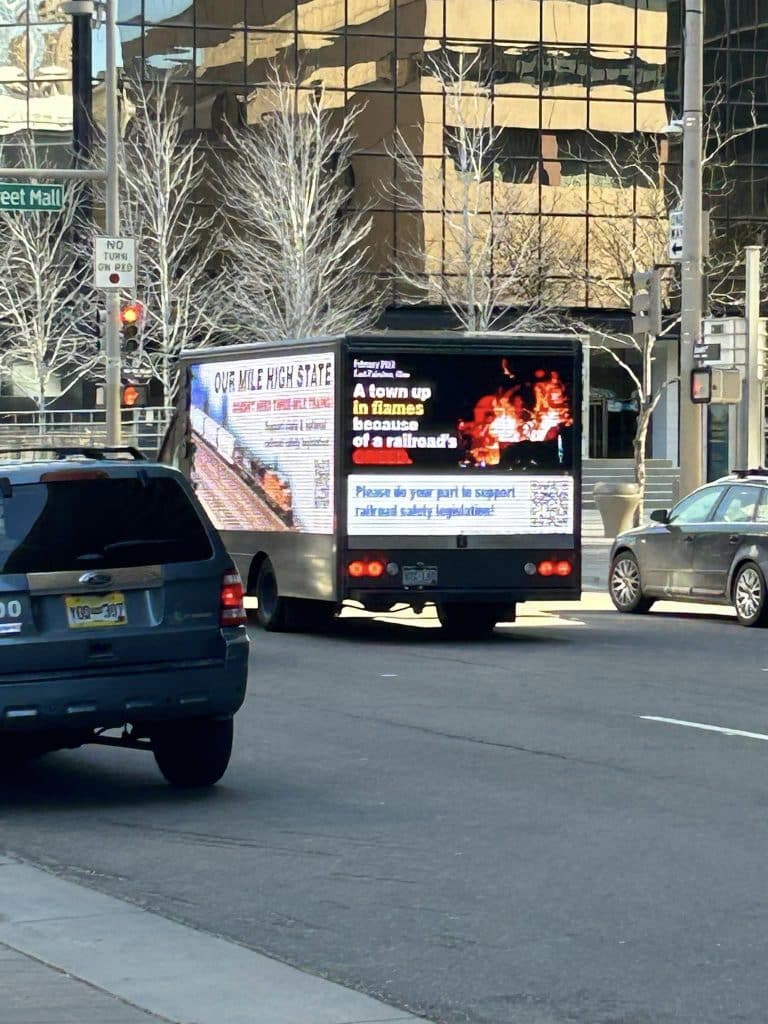
The truck made several stops mirroring Fritz’s Mile High State tour. First, the truck went to the Rocky Mountain Train Show at the National Western Complex in Denver. Per the train show’s website, this event averages 11,000 attendees as the largest train show west of the Mississippi River. SLD Smith had the truck there both days of the show and prompted many discussions among the train enthusiasts in attendance.
The truck stayed in Denver over the weekend but did not only target the good people attending the show. It also made its way to three governmental functions. On Saturday, the truck and its messages could be seen circling Colorado’s statehouse as legislators were holding a rare weekend session. Additionally, the truck’s presence was felt at the Colorado Democratic Assembly meeting in Denver. On Saturday evening there was a large gathering of legislators and dignitaries at what is called the Colorado Obama Gala which features the former president and all the press that naturally follows him. As you might have guessed, Smith made sure SMART-TD’s anti-PSR message crashed that, too.
On April 3, Fritz and his entourage took UP’s business train to LaSalle, Colo., for a meeting. If they thought not being in Denver would spare them the presence of Smith’s billboard truck, they were undoubtedly disappointed that it had made the 50-mile journey north to greet them in LaSalle.
On April 4, Fritz held a legislative breakfast meeting on the business train. Brother Smith and his truck made sure they made their presence felt their too. UP’s attempt to get these legislators’ undivided attention was disrupted by the Smith’s inconvenient reminder that there are real-world consequences attached to the empty rhetoric of the rail carriers and their lobbyists try to sell.
The graphics for the signs were put together in house by SMART-TD’s PR staff, and the cost for the truck was shared between the Colorado State Legislative committee, Local 202 out of Denver and other local boards of adjustment.
This effort on the part of the Colorado Legislative Committee was not all about making departing CEO Fritz and co. aware of SMART-TD’s objections to the way they run a railroad, and the public awareness the truck created throughout the state has an additional purpose.
Brother Smith has a three-pronged bill to be introduced in the halls of Colorado’s Legislature. His bill looks to directly undo some of the basic problems our faces in the era of PSR. The legislation has not been assigned a bill number yet, but seeks to limit train lengths, regulate the use of hot box defect detectors in the state and bring about penalties for the carriers to discourage blocked crossings.
Getting his box truck in front of as many Colorado voters, and news cameras as possible was a unique and creative kickoff to Smith’s campaign to get this important legislation the momentum it needs.
SMART-TD wants to thank Brother Smith, Local 202, and all the men and women who made this possible. We look forward to reporting on the progress of your bill as it makes its way through the process of becoming the law of the land in the great state of Colorado, and we hope you never stop fighting for our members!
